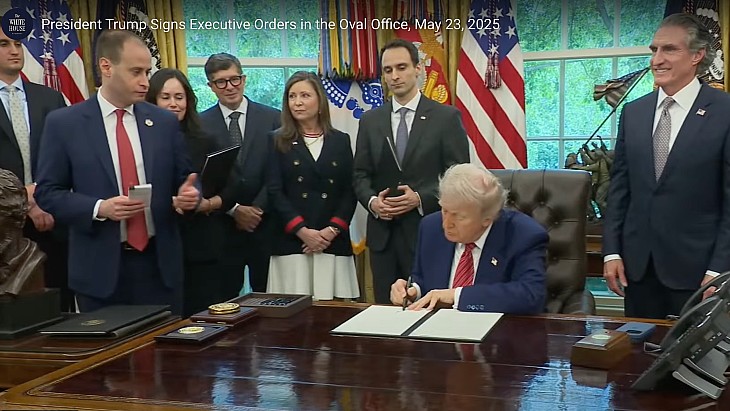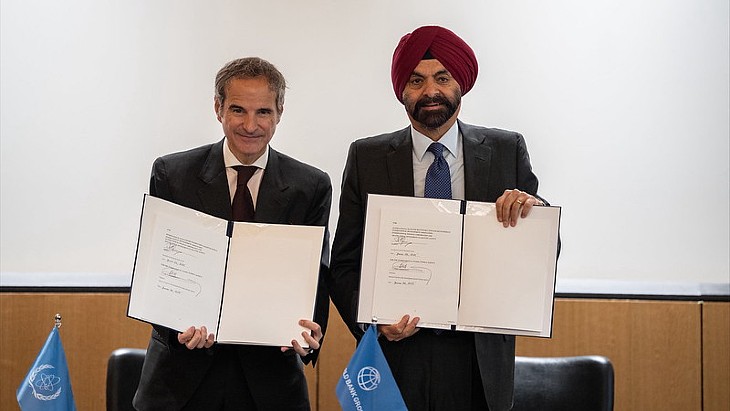Argentina, Russia expand nuclear energy cooperation
.jpg)
Following the signing ceremony, Likhachov said: "The signed document will allow us to broaden the existing cooperation with our Argentinian partners. All of us at Rosatom are certain that this step will incentivise our mutually beneficial cooperation in the application of nuclear technology for peaceful purposes."
Rosatom said one of the fundamental areas of mutual cooperation outlined in the document is "the development of various project execution strategies to be applied to large and small capacity nuclear power plant construction projects in Argentina". The two countries will also implement joint projects in third world countries, including the construction of research centres and human resources development. The document also provides for opportunities for Argentina and Russia to cooperate in other areas, including joint research and personnel training.
According to the document, the two countries will also consider the joint operation of a fleet of Russian-designed floating nuclear power plants.
A cooperation 'roadmap' on the implementation of specific Russian-Argentine nuclear energy projects was also signed.
In a statement following talks with Macri, Putin said: "I talked in detail with the President about the importance of deepening industrial cooperation, the implementation of large bilateral projects. In this context, we discussed the issue of building on the territory of Argentina and a nuclear power plant using Russian technologies."
He added, "I am sure that the strategic document on cooperation in the field of the peaceful atom, signed by Rosatom and Argentine colleagues, will create the necessary conditions for the implementation of existing large-scale joint plans in this crucial area."
Russia and Argentina signed an intergovernmental agreement in July 2014 on cooperation in the peaceful use of atomic energy. That agreement replaced an earlier one that expired in December 2012 and expanded areas of cooperation. These areas included design, construction, operation and decommissioning of nuclear power plants and research reactors, including water desalination facilities. They also included support of the nuclear fuel cycle, radioactive waste management, and isotope production.
In April 2015, Russia and Argentina signed an MoU establishing a "framework for cooperation" for construction of a 1200 MWe VVER unit in the South American country. JSC Rusatom Overseas and Nucleoeléctrica Argentina SA also signed a preliminary project development agreement on construction of the country's sixth reactor.
In January this year, Russia and Argentina signed a memorandum of understanding (MoU) on uranium exploration and mining in the South American country. The MoU aims to promote cooperation between Russia and Argentina in uranium exploration and mining, with a particular focus on the in-situ recovery method of uranium extraction.
Argentina has three operating nuclear power plants, all pressurised heavy water reactors. With total generating capacity of 1627 MWe, the three units - Atucha 1 and 2 plus Embalse - provide about 10% of the country's electricity. A prototype domestically designed and developed 25 MWe small pressurised water reactor - CAREM - is under construction at a site adjacent to the Atucha plant.









..._58412.jpg)

